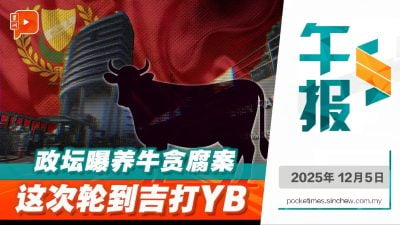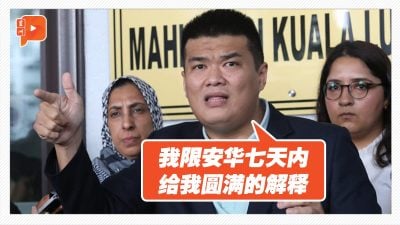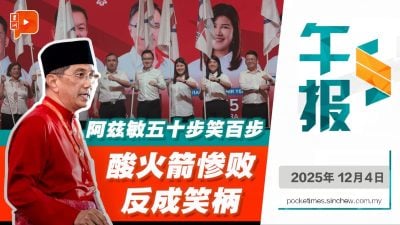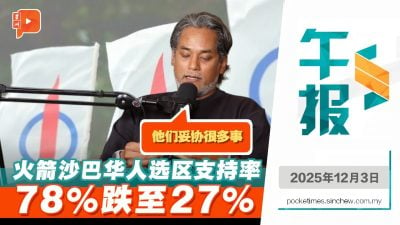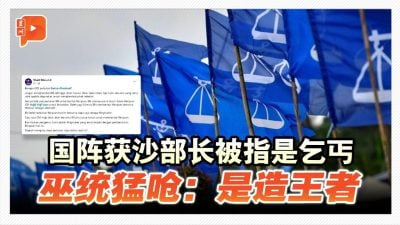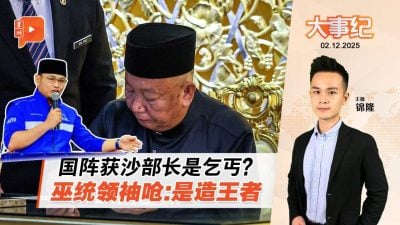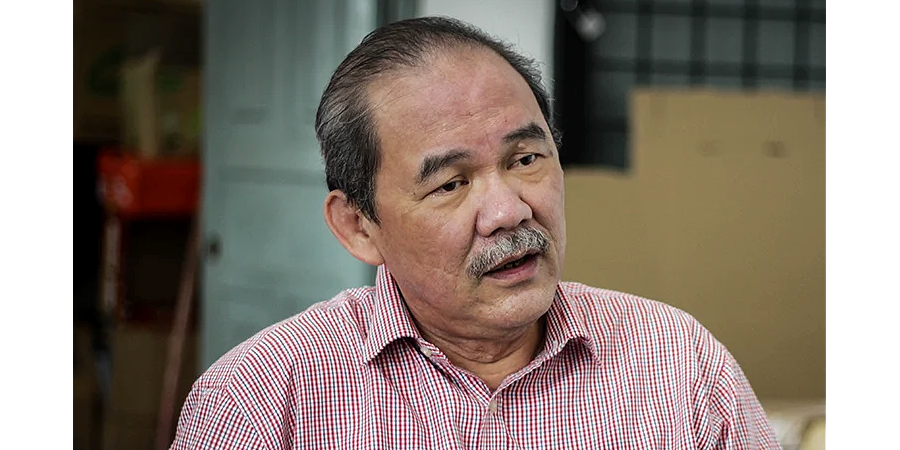
I wrote the following message titled: The Sabah Election: As I see it” on Nov 5, and shared it in my WhatsApp groups and with other friends and associates on my contact list:
“With such a crowded field, where each of the 73 seats will likely see multi-cornered contests, the result can be as unpredictable as the weather atop Mount Kinabalu.
“I foresee a hung assembly on Nov 29 and Sabah’s political future will depend on alliances struck after the votes are counted.
“There is a high probability that you will see the same ‘frogs’, the same self-serving politicians, tainted and known to be greedy and corrupt back in business again.
“I expect the drama to end where it always does, with recycled promises and repainted party colors, and the winning politicians whispering to themselves in glee, ‘Now, I’ve struck the jackpot; it’s my turn to steal.’
“And as always, at the end of it all, Sabahans and Sabah are the losers.”
That was nine days ago.
As I write this on Nov 14, the names of candidates have been announced and as I had expected, it was more of the same tainted big guns and others whose political shelf-life has long expired, all refusing to go away.
Of course, we can expect a very crowded field after nomination day (Nov 15) but the big names, entrenched dynasties and their family members are those who matter as most are expected to emerge victorious on Nov 29.
Firstly, we see several members of the ruling Gabungan Rakyat Sabah (GRS), including Chief Minister Hajiji Noor, who have been tied to a mining license bribery scandal on the list of candidates.
Then, Shahelmey Yahya, Works Minister and Tanjung Keramat assemblyman, who was also named in the mining scandal and suspended from Umno Sabah for six years in 2023 also on the GRS list.
All the 10 ministers and state assemblymen implicated in the scandal were renominated to contest the Nov 29 polls.
To top it all, Sabah Umno chief Bung Mokhtar Radin, currently facing a graft-related charge, is also a candidate. Talk of credibility and integrity, what can be more embarrassing for Umno than this?
Apart from their loyal party supporters and personal followers, many ordinary Sabahans would likely feel disillusioned and insulted by the decision to field tainted candidates once again.
It reinforces the perception that the political elite remain indifferent to integrity and accountability, treating voters as though they have short memories or no standards.
For many, such decisions confirm that Sabah’s politics is still trapped in a cycle of patronage, corruption and recycled faces, where loyalty and money matter more than merit and morality.
Indeed, the public’s frustration runs deep, and while some may still vote along party lines, others will see this as yet another betrayal of the people’s hope for cleaner, more principled leadership.
As if fielding tainted candidates is not bad enough, Sabahans are still stuck with family members of political dynasties, some of whom have exhibited little leadership quality and known to be morally unstable and opportunistic.
Sadly, in Sabah politics, family networks remain powerful and many dynasties will always position themselves, come very election.
Governor Musa Aman’s family is the most prominent. His son, Yamani Hafez Musa, is making his state election debut for Pakatan Harapan in Sindumin while his younger brother, Hazem Mubarak Musa, is contesting under GRS. The family’s reach extends into multiple seats.
Warisan president Shafie Apdal’s brother, Yusof Apdal, is contesting in Silam, while his nephew Jamil Hamzah is also in the race.
The legendary Kitingan family remains a force, with brothers Joseph Pairin Kitingan and Jeffrey Kitingan having long represented different sides of the political spectrum.
Then, we have the Bahanda siblings. The coming polls will see a three-way sibling rivalry, with Wetrom Bahanda (KDM, Matunggong), his sister Redonah Bahanda (GRS, Bandau), and their brother Verdon Bahanda (Independent, Tanjong Kapor) all contesting.
While Sabah Progressive Party president Yong Teck Lee is sitting this election out, his children, Yit Jee Yong (Likas) and Yvonne Yong (Segama), will be contesting.
Also for GRS, there is a husband-and-wife team. Pandikar Amin Mulia will run in the Pintasan seat while his wife, Diana Diego, was also named as the candidate for Sekong.
There is also a father and son team in the GRS stable. Juhari Janan and his son, Johanizamshah Johari, will take on Lamag and Sukau, respectively.
In Sabah, the ballot is often as much a test of family loyalties as it is of party lines, and this election is proving to be no different.
It’s now clear. This Sabah election features a mix of tainted incumbents carrying baggage (corruption allegations, defection issues), old-guard politicians seeking renewed mandates despite fading resonance, and family dynasties who continue to leverage name, network and local influence.
The combination raises the stakes—voters’ impatience with governance, desire for new faces and scrutiny on integrity may make for a volatile outcome.
Because of this, the election outcome is highly uncertain—coalitions are fluid, so a “happy ending” in terms of a clear mandate or stability is less likely.
As I’ve stated earlier, a hung assembly is very likely, especially now that the candidates are known plus the uncertainties in the voting pattern.
No one on Sabah will feel that a hung assembly is a happy ending for the election, come Nov 29.
(Francis Paul Siah is a veteran Sarawak editor and currently heads the Movement for Change, Sarawak (MoCS). He can be reached at [email protected].)
ADVERTISEMENT
ADVERTISEMENT






